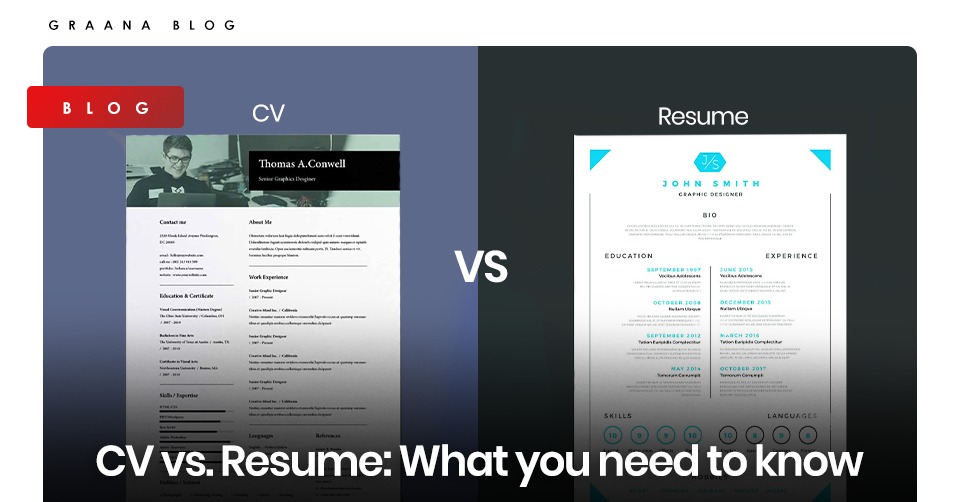
Are you a graduate or about to graduate?
Looking for an employment opportunity to start your professional career?
Look no further because IMARAT Group of Companies once again brings the program of “Future Icons”.
Future Icons is a management trainee program of 1 year that only hires fresh graduates and promises them a journey of learning and growth. After completing one year of training, they offer a full-time job. While training, you can choose a department of your own choice.
These kinds of programs give a boost to your portfolios. Moreover, it also builds your cv or resume. If you are planning to apply for Future Icons or any other job, this blog will help you create a professional cv or resume.
We always get confused with CV and resume. Are they both the same? What is the difference between these two? Most of you will have these questions as you apply for your next job.
To clear the mix-up of CV vs resume, Graana.com, Pakistan’s smartest property portal, has covered everything you need to know about the difference between a CV and a resume.
A resume or CV is an essential tool for your job hunting process because they provide a complete overview of your background, highlighting your best skills and experiences.
Your CV or resume assists employers in making hiring decisions and obtaining your first interview. That is why it is important to consider how you design your resume or CV and what information and details you include.
A Curriculum vitae (CV) is a Latin word meaning “course of life”. CV describes an overview of your experience and qualifications.
A CV is usually two or three pages long, but it can be expanded to over 10+ pages if needed. Some organizations mention a one-pager CV when they expect a large number of applicants.
A Curriculum Vitae describes your education, professional career, publications, awards, honors, and other accomplishments.
In some countries, such as the United States and Canada, CV is only used for academic jobs, grants, research fellowships, and so on. On the other hand, CVs are longer than resumes and contain more details, particularly information about one’s research and academic background.
Every time you achieve something new in your academic or professional life, you should update your CV. That is, whenever you start a new job, publish something new, or get a new certificate.
Resume is a French word meaning “summary”. A resume is a brief, to-the-point document created for the purpose of applying for a specific job.
The purpose of a resume is to present your experience, education, and skills in a standardised format that recruiters can easily read. Unlike a CV, a resume should be kept as short as possible, not longer than one page.
However, if you think you have years of experience and adding additional information can add value to your resume, you can add it but no more than two pages.
Now that you know about a CV and a resume, here’s a detailed list of the differences:
The most important difference between a CV and a resume is the length of both documents. A CV consists of 2 or more 2 pages and it is more comprehensive. However, a resume remains short, usually 1 page.
The curriculum vitae (CV) is primarily used for academic purposes or placement, such as applying for a research program, fellowships, grants, or joining the faculty of a university. In contrast, a resume is used for any kind of regular job in a company or Institution.
In a CV, you add your academic qualifications, achievements, and certifications. Whereas, resumes focus on your professional accomplishments rather than academic ones.
There are a few guidelines you should follow while writing a CV or a resume. It is essential to show to the employer how you are qualified for the position, what you can offer to the organization, and why you would be a suitable candidate to interview.
Mentioned below are some tips and formats for both documents:
Following is the format to build a professional CV.
Mentioned below is the format to build a professional resume.
This blog clears up the differences between CVs and resumes. Now, It is up to you to determine which document best suits your requirements and job search process. Follow Graana blog for more information.
Islamabad: The Executive Committee of the National Economic Council (ECNEC) on Tuesday approved two key…
Rawalpindi: A long-awaited remodelling project for Kachehri Chowk, one of Rawalpindi’s busiest intersections linking the…
Islamabad: The Federal Government Employees Housing Authority (FGEHA) on Tuesday signed a Memorandum of Understanding…
Lahore: The Lahore Development Authority (LDA) has announced plans to launch development works in the…
KARACHI: The Sindh government is set to launch the Lyari Transformation Project this year to…
Islamabad: The Capital Development Authority (CDA) has added two major infrastructure initiatives to its latest…